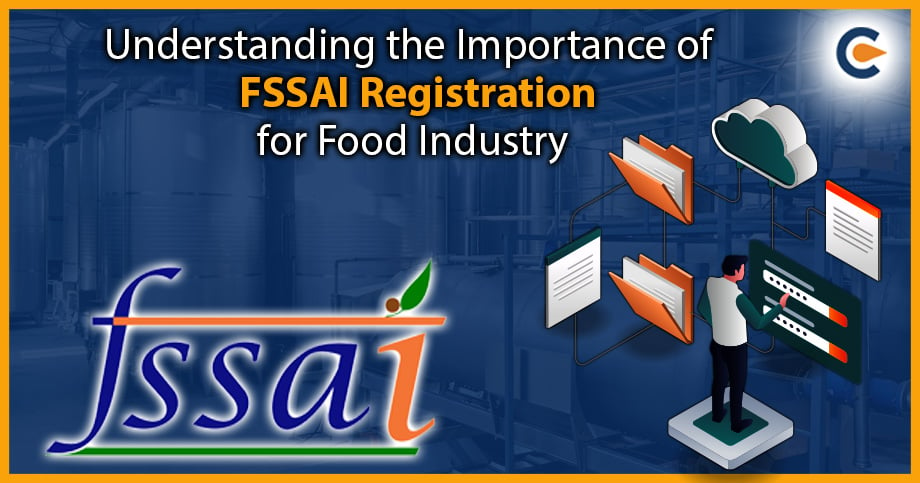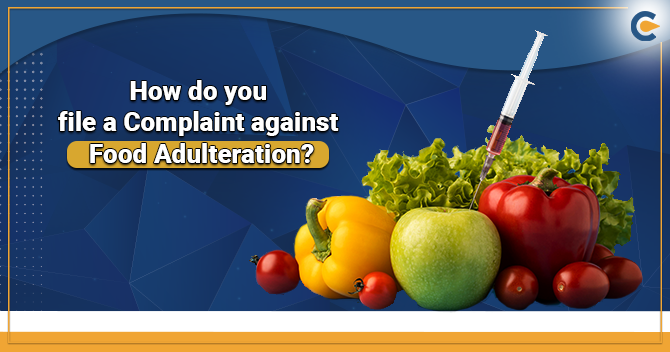The FSSAI is the agency in charge of registering the licences of each and every food business operator (FBO) in India, regulating quality checks of food products, limiting food adulteration, and prohibiting the sale of subpar goods. It establishes the guidelines for doing food business in India and makes sure that the general public’s health is protected. Anyone working in the food industry is required to obtain a certificate of FSSAI Registration for Food Industry.
Anyone starting a food business must adhere to the norms and regulations set forth by the FSSAI. Every food business operator engaged in the manufacture, processing, storage, distribution, or sale of food items in the nation is required by the FSS Act to be registered with or granted a licence by the FSSAI. The food license’s 14-digit registration number, which is written on food packaging or displayed on the premises, provides information about the producer’s authorization and denotes legal certification. FSSAI maintains and promotes the welfare of food businesses in India by establishing the standards and guiding principles for food safety. In this write-up, we will discuss the importance of FSSAI Registration for Food Industry.
About FSSAI
Food Safety and Standard Authority of India is referred to as FSSAI. It is a statutory organisation under the control of the Indian government’s Ministry of Health and Family Welfare. The Food Safety and Standards Act (2006) authorised the establishment of the FSSAI. The FSSAI seeks to safeguard and advance public health via appropriate legislation and oversight of food safety.
The head of the FSSAI is a non-executive chairperson who is chosen by the Central Government and who now holds or has held a post with the Government of India that does not fall below the rank of secretary. New Delhi is home to the FSSAI’s administrative centre. In Delhi, Mumbai, Guwahati, Kolkata, Chennai, and Cochin there are six regional offices for it. In India, there are 14 referral labs, 72 state and union territory labs, and 112 commercial labs that have been granted accreditation by the NABL i.e. National Accreditation Board for Testing and Calibration Laboratories.
Powers of the Food Safety and Standards Authority of India (FSSAI).
- Creating regulations to establish requirements for food safety
- Establishing standards for the accreditation of food testing laboratories
- Offering the Central Government technical assistance and scientific advice
- Assisting in the creation of global technical food standards
- Gathering and compiling information about food consumption, contamination, new dangers, etc.
- Spreading knowledge and raising awareness about nutrition and food safety in India.
Overview of the FSSAI Act of 2006
“An Act to combine establishing the Food Safety and Standards Authority of India and amending the food laws by establishing scientifically based standards for food products and regulating their production, distribution, storage, sale, and import to ensure the availability of safe and healthy food for human consumption and for issues connected therewith or incidental thereto,” is how the Food Safety and Standards Act, 2006[1] is defined.
Before this law was created, the following procedures were used to oversee the nation’s food security:
- Vegetable Oil Products (Control) Order, 1947
- Prevention of Food Adulteration Act, 1954
- Fruit Products Order, 1955
- Meat Food Products Order, 1973
Several further actions were also carried out. But in 2006, the government established the FSS Act, which incorporated all of the clauses and rules specified in the aforementioned legislation.
What are the different types of FSSAI licenses in India? – FSSAI Registration for Food Industry
The FSSAI creates an information network throughout the nation so that the general public and customers can obtain reliable and accurate information about food safety and other urgent issues. The FSSAI licence is required for anyone planning to launch a food business. There are various FSSAI licence types, which has led to considerable uncertainty among food industry owners regarding eligibility. The size, kind, scope, and total yearly revenue of the food business are the criteria used to classify businesses under the FSSAI. This states that there are three different FSSAI or food licencing kinds.
FSSAI Basic Licence
Operators of food businesses with an annual turnover of up to 12 lakhs are required to obtain a basic FSSAI licence. All small-scale business owners who operate petty food producers, small-sized manufacturers, retailers, transporters, marketers, distributors, storage facilities, etc., are included in this category. Typically, they would be based out of and operating locally in a specific location, region, city, or town. This licence has a one-year minimum and a five-year maximum term. The State government is the one who issues the registration.
FSSAI State licence
Small to medium-sized food producers, merchants, transporters, marketers, distributors, and storage facilities must get an FSSAI State licence from the State administration. It is typically for organisations with an annual revenue of more than 12 lakhs and has a minimum duration of one and a maximum tenure of five years.
FSSAI Central licence
Operators in the food industry, including big manufacturers, 100% export-oriented businesses, importers, and employees of central government agencies, must get an FSSAI registration central licence. This licence is mostly for businesses that generate more than 20 crores annually. The central licence is issued by the central government. An FSSAI central licence should be obtained by food business owners who operate in many locations or across several states.
Who all falls under the category of FSSAI registration?
Food Business Operators(FBOs) involved in the following kinds of business are compulsorily required to obtain a FSSAI registration/license:
- Temporary stalls or fixed stall/food premises involved in the preparation distribution, storage & sale of food products such as gol gappa stalls, chat stalls, fruits or vegetable vendors, Tea stall, snacks, Chinese food stall, south indian food stalls, Bread pakoda stall, samosa stall, sweet stall, juice shop, etc.
- Hawkers sell packaged or freshly prepared food by travelling (usually on foot or movable carts) from one place to other places.
- Dairy units include milk chilling units, petty milkmen and milk vendors.
- Vegetable oil processing units.
- Slaughtering houses such as meat shops, mutton shops, chicken shops, etc.
- Meat processing and fish processing units.
- All food manufacturing (processing units that include re-packing).
- Proprietary food and novel food.
- Cold \refrigerated storage facility wholesaler, supplier distributor and marketer of food products.
- Hotels, Restaurants and Bars.
- Canteen and cafeteria including mid-day meal canteens.
- Food vending Agencies and centers.
- Dhaba, PG providing food, Banquet Halls with food catering, arrangement Home Based canteens or religious institutions.
- Important and exporters of food items including food ingredients.
List of Documents for FSSAI Registration for Food Industry
Following is the list of documents required during the process of FSSAI registration for food industry:
- A passport-size photo of the applicant
- Photograph of the applicant
- A copy of government-authorised Identity proofs of the food business operator, which should include the following:
- A copy of the Ration card
- A copy of the Voter ID
- A copy of
- A copy of the Driving license
- A copy of the Passport
- A copy of the Aadhar card
- A no objection certificate (NOC) from the local governing body
- A NOC from the local health department
- Application as prescribed under form A or form B
- List of all the directors and partners along with their government authorised ID and address proofs
- Contact details of all the partners and directors or the operator
- Proof of possession of business premises
- Business incorporation certificate
- No Objection Certificate (NOC) from the manufacturer for repackers and re-labellers
- Food safety management system (FSMS) plan
- Source of milk, water, and raw materials
- Form IX along with the board resolution
- Certificate from the Ministry of Tourism for hotels
- Blueprint of the unit
- List of equipment used along with the installation capacity
- List of food categories
- Authority letter, if required
- Water analysis report
Process for obtaining the FSSAI Registration for Food Industry
The following steps are involved for obtaining an FSSAI registration for Food Industry:
- Get your business plan.
- Determine your yearly turnover.
- Determine which type of license is essential for your business.
- Fill out the application and complete documentation.
- Paying the charge
- Finally submit the application
Is FSSAI License necessary for cloud kitchen in India?
One of the most popular food company concepts nowadays is the Cloud Kitchen. There are many names given to this concept, such as a ghost kitchen or a black kitchen. In this concept, the kitchen is only used for take away orders. It functions as a normal restaurant, but it only accepts online food orders and delivers food to customers’ homes. It does not have a physical location where food is served; instead, food is delivered to customers’ doorsteps from a base kitchen.
India’s food business is governed by the FSSAI. All Food Business Operators (FBOs), including all the cloud kitchens, are required to register and must obtain FSSAI Licence. Depending on their annual turnover, cloud kitchens may be granted the FSSAI Basic license, the FSSAI State license, or the FSSAI Central license.
Conclusion
You must register with the FSSAI if you intend to launch a food business. The initials FSSAI, which stands for “Food Safety and Standards Authority of India,” are used to refer to the organisation that manages FSSAI registration for food industry in India. The 14-digit registration number for the food licence, which is placed on food packaging or displayed on-premises and provides information about the producer’s permit and suggests the legal certification, is issued to the operator once they have been granted a licence. FSSAI maintains and promotes the welfare of food businesses in India by establishing standards and guiding principles for food safety.
Read our Article:FSSAI Registration Fees And Various Aspects











